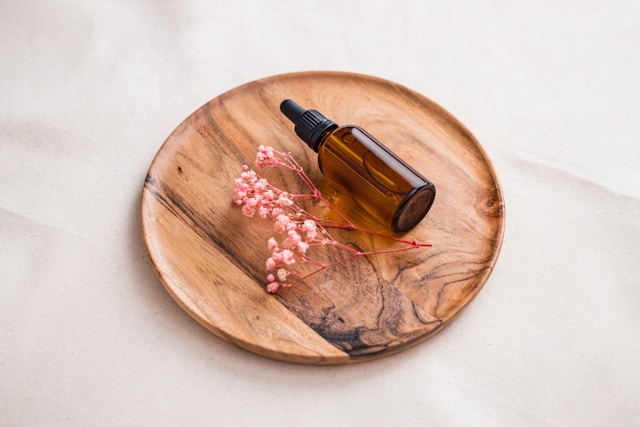How Patience Improves Your Health, Well-Being, and Emotional Intelligence
Introduction
Patience is a virtue that has been celebrated for centuries, yet in today’s fast-paced world, it often feels like a rare quality. Whether it’s waiting in a long queue, dealing with a difficult person, or working towards long-term goals, patience plays a crucial role in our mental, emotional, and physical well-being. It is a key aspect of emotional intelligence that helps us navigate life with resilience and grace. But why is patience important, and how does it contribute to our overall health and well-being? Let’s explore the significance of patience and how we can cultivate it in our daily lives.
Why Is Patience Important?
Patience is much more than just the ability to wait—it is a mindset that allows us to remain calm, composed, and positive even in challenging situations. Here are some key reasons why patience is essential:
1. Improves Mental Health
Patience reduces stress, anxiety, and frustration. Impatience often leads to negative emotions, causing emotional distress and mental fatigue. When we practice patience, we cultivate a peaceful state of mind, leading to better mental health.
2. Enhances Emotional Intelligence
Emotional intelligence (EQ) is the ability to understand and manage our emotions effectively. Patience is a fundamental component of EQ, as it helps us respond thoughtfully rather than react impulsively to situations. People with high emotional intelligence are better at handling conflicts, building relationships, and managing stress.
3. Strengthens Relationships
Patience fosters better communication, understanding, and empathy. Whether in personal or professional relationships, having patience allows us to listen, process, and respond appropriately rather than reacting with frustration or anger.
4. Promotes Physical Health
Chronic stress and frustration from impatience can lead to high blood pressure, weakened immunity, and other health issues. By practicing patience, we reduce stress levels, leading to improved physical health and longevity.
5. Encourages Better Decision-Making
When we act impulsively, we are more likely to make poor decisions. Patience allows us to analyze situations thoroughly and make informed choices, leading to better outcomes in both personal and professional life.
6. Supports Personal Growth and Success
Great achievements require time, effort, and perseverance. Patience helps us stay committed to our goals, overcome obstacles, and achieve long-term success without becoming discouraged.
The Connection Between Patience and Health & Well-Being
Patience plays a vital role in maintaining both mental and physical health. Here’s how it influences overall well-being:
1. Reduces Stress and Anxiety
When we rush through life with impatience, we experience heightened stress and anxiety. By cultivating patience, we allow ourselves to slow down, breathe, and embrace the present moment, leading to reduced stress levels.
2. Enhances Mindfulness and Inner Peace
Patience encourages mindfulness, which means being fully present and accepting things as they are. When we are patient, we are less likely to feel overwhelmed by minor inconveniences and more capable of maintaining inner peace.
3. Boosts Resilience and Coping Skills
Life is full of challenges, and impatience can make difficult times even harder. Patience helps us develop resilience, allowing us to cope with setbacks and disappointments with a positive attitude.
4. Encourages Healthy Habits
Many health-related goals, such as weight loss, fitness, or recovering from an illness, require patience. Those who practice patience are more likely to stick with healthy habits and see long-term benefits.
5. Improves Sleep Quality
People who are impatient often struggle with restlessness and insomnia. A patient mindset reduces stress and promotes relaxation, leading to better sleep quality and overall well-being.
How to Cultivate Patience in Daily Life
Patience is a skill that can be developed with conscious effort and practice. Here are some effective ways to incorporate patience into your daily routine:
1. Practice Mindfulness and Meditation
Mindfulness helps us become more aware of our emotions and reactions. Meditation, deep breathing, and mindfulness exercises can train us to stay calm and composed in challenging situations.
2. Develop Self-Awareness
Recognize when you are becoming impatient and analyze the triggers behind it. By identifying patterns, you can work on changing your reactions and adopting a more patient approach.
3. Reframe Your Perspective
Instead of viewing delays or obstacles as frustrations, see them as opportunities for growth. Changing your mindset can help you handle situations with greater ease and acceptance.
4. Set Realistic Expectations
Unrealistic expectations often lead to impatience. Set achievable goals and understand that good things take time. Whether it’s career growth, fitness progress, or personal development, patience is the key to long-term success.
5. Practice Gratitude
Gratitude helps shift our focus from what we lack to what we have. When we appreciate the present moment and count our blessings, we naturally become more patient and content.
6. Engage in Activities That Require Patience
Pursuing hobbies such as gardening, painting, or playing a musical instrument can help develop patience. These activities require time and practice, reinforcing the value of perseverance.
7. Develop Emotional Regulation Techniques
When faced with impatience, practice techniques such as deep breathing, counting to ten, or stepping away from the situation. These strategies can prevent impulsive reactions and help you respond more calmly.
8. Learn from Role Models
Observe and learn from people who exhibit patience in their daily lives. Whether it’s a mentor, a family member, or a historical figure, their experiences can inspire you to cultivate patience in your own life.
Conclusion
Patience is not just an admirable quality; it is essential for maintaining mental, emotional, and physical well-being. It plays a crucial role in reducing stress, improving relationships, fostering emotional intelligence, and promoting personal growth. By consciously adopting patience in our daily lives, we can enhance our overall quality of life and achieve greater success and happiness. Through mindfulness, self-awareness, and a shift in perspective, patience can become a natural part of our personality, leading to a more fulfilling and balanced life.
Understanding Postpartum Depression: Signs, Symptoms, Baby Blues & Self-Care Management Becoming a parent is a life-changing experience. The birth of a baby …
PQRS Homeopathy – Characteristics symptoms of Materia Medica Everyone knows Homeopathy treatment is individualized. Case taking itself takes vast time, to understand …
The Benefits of Mental Health Counseling: Why You Should Seek Help Introduction Mental health is as crucial as physical health, yet many …
Discovering Personal Values: The Key to a Purposeful and Authentic Life In today’s fast-paced world, understanding who you are and what drives …
Share this post: on Twitter on Facebook on LinkedIn





